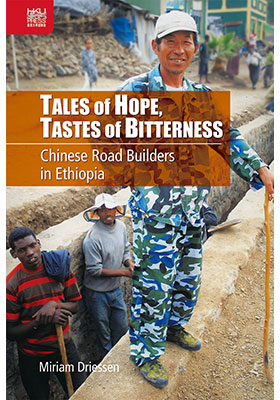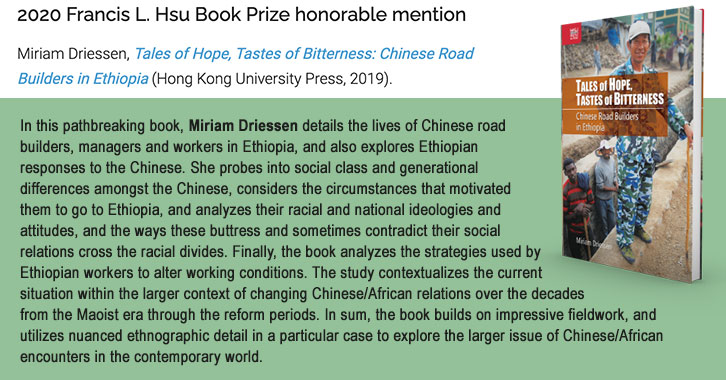Tales of Hope, Tastes of Bitterness
Chinese Road Builders in Ethiopia
(苦澀的希望:中國路工在非洲)
ISBN : 978-988-8528-04-2
June 2019
208 pages, 6″ x 9″, 2 b&w maps
- HK$350.00
Ebooks
China’s new globalism plays out as much in the lives of ordinary workers who shoulder the task of implementing infrastructure projects in the world as in the upper echelons of power. Through unprecedented ethnographic research among Chinese road builders in Ethiopia, Miriam Driessen finds that the hope of sharing China’s success with developing countries soon turns into bitterness, as Chinese workers perceive a lack of support and appreciation from Ethiopian laborers and state entities. The bitterness is compounded by their position at the margins of Chinese society, suspended as they are between China and Africa and between a poor rural background and a precarious urban future. Workers’ aspirations and predicaments reflect back on a Chinese society in flux as well as China’s shifting place in the world.
Tales of Hope, Tastes of Bitterness: Chinese Road Builders in Ethiopia sheds light on situations of contact in which disparate cultures meet and wrestle with each other in highly asymmetric relations of power. Revealing the intricate and intimate dimensions of these encounters, Driessen conceptualizes how structures of domination and subordination are reshaped on the ground. The book skillfully interrogates micro-level experiences and teases out how China’s involvement in Africa is both similar to and different from historical forms of imperialism.
“A trailblazing ethnography that at once humanizes and complicates our understanding of the China-Africa encounter. Taking us deep into the personal, social, and working life worlds of Chinese and Ethiopian construction staff and laborers, Driessen mounts a powerful challenge against the clichéd narrative of China in Africa as a case of neocolonialism masterminded by Beijing.” —Ching Kwan Lee, UCLA, author of The Specter of Global China: Politics, Labor, and Foreign Investment in Africa
“China rapidly transformed itself from an international aid recipient into a world-leading aid provider. This seemingly epochal shift, as this book powerfully demonstrates, is much more complex and less predictable than it appears to be. Driessen’s wonderfully perceptive ethnography and insightful analyses pave a new path in understanding ongoing global changes.” —Biao Xiang, University of Oxford, author of Global “Body Shopping”: An Indian Labor System in the Information Technology Industry




